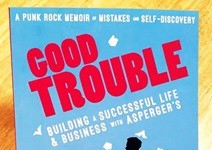
From the press release:
As more publishing revenue transitions to digital, publishers are less optimistic about the state of the book publishing industry in general and much less optimistic about their own company’s chances at survival and growth, according to a Digital Book World survey conducted by Forrester Research, Inc. The full results of the survey will be released at the Digital Book World Conference + Expo in New York on January 24 (www.digitalbookworldconference.com).
The survey was conducted among publishing executives at major publishing companies across the U.S. that represent 74% of all U.S. publishing revenues. According to the survey, now in its second year, 82% of book publishing executives are “optimistic” about the digital transition, down from 89% a year ago.
Similarly, fewer publishers believe that as a result of digital advances:
* Readers will be better off, 61% in 2011, down from 74% in 2010
* More people will read books than did before, 60% in 2011, down from 66% in 2010
* Readers will read a greater number of books than before, 47% in 2011, down from 66% in 2010
When asked about their own companies, the pessimism became more pronounced: Only 28% of publishing executives think their company will be better off because of the transition to digital, down from 51% a year ago.
“People are generally optimistic still, but that optimism is waning,” said James L. McQuivey, Ph.D., Vice President and Principal Analyst at Forrester, who conducted the survey. “Publishers have started to do the hard work of making the digital transition and they’re finding that it is, indeed, hard work.”


































Yes, it is hard work; and they’ve made it harder by fighting the prices tooth and nail.
Their insistence on throwing roadblocks in the form of high prices, out-of-print digital rights lawsuits and experiments with delayed release dates have all resulted in more negative feelings from their customer base–the reader–than is necessary.
If they want to stop reader alienation, they have to look at digital books as just another commodity in their line. Secure the rights, edit the book, have it copied to digital form, sell it to booksellers in the same way they sell hardcover and paperbacks. Stay out of the bookselling business. (Yes, I’m aware that this is an over-simplification, but then publishers seem to be making e-book selling overly complicated.)
Statistics seem to say that the A6 are all experiencing increasing digital sales. Most businesses would be happy to see results like this.
Hmm, looking at those answers, I see a lot of projection: they see things getting worse for them and, since they are the “champions” of the readers, *of course* things will get worse for the readers. (yeah, right!)
Still, there is a ray of hope: 33% realize that while things will be worse for their company, they *will* be better for readers.
Now if only the other two-thirds would get with the program, they *might* be able to position themselves to improve their prospects.
The first step is realizing *you* have a problem.
In this case, once they accept they have a problem, they need to take thhe next step and realize *they* are the problem.
As Pogo said: “We have met the enemy and he is us.”
The worst enemy of the traditional publishers is the traditional publishers.
It didn’t have to be like this…
Absolutely right Felix. These executives have failed totally to manage the transition despite having years of warning. They know that they are are now behind the curve and this is that is behind their above views. They also know that they will have to work a lot harder in future to make the easy money that they have earned in the past. They know writers now have options and readers have even more options.
Hardly surprisingly their ego’s are behind their views that their welfare is that of the reader. The truth is the future is rosy for readers. More options, more choices, more writers, more titles and better value.